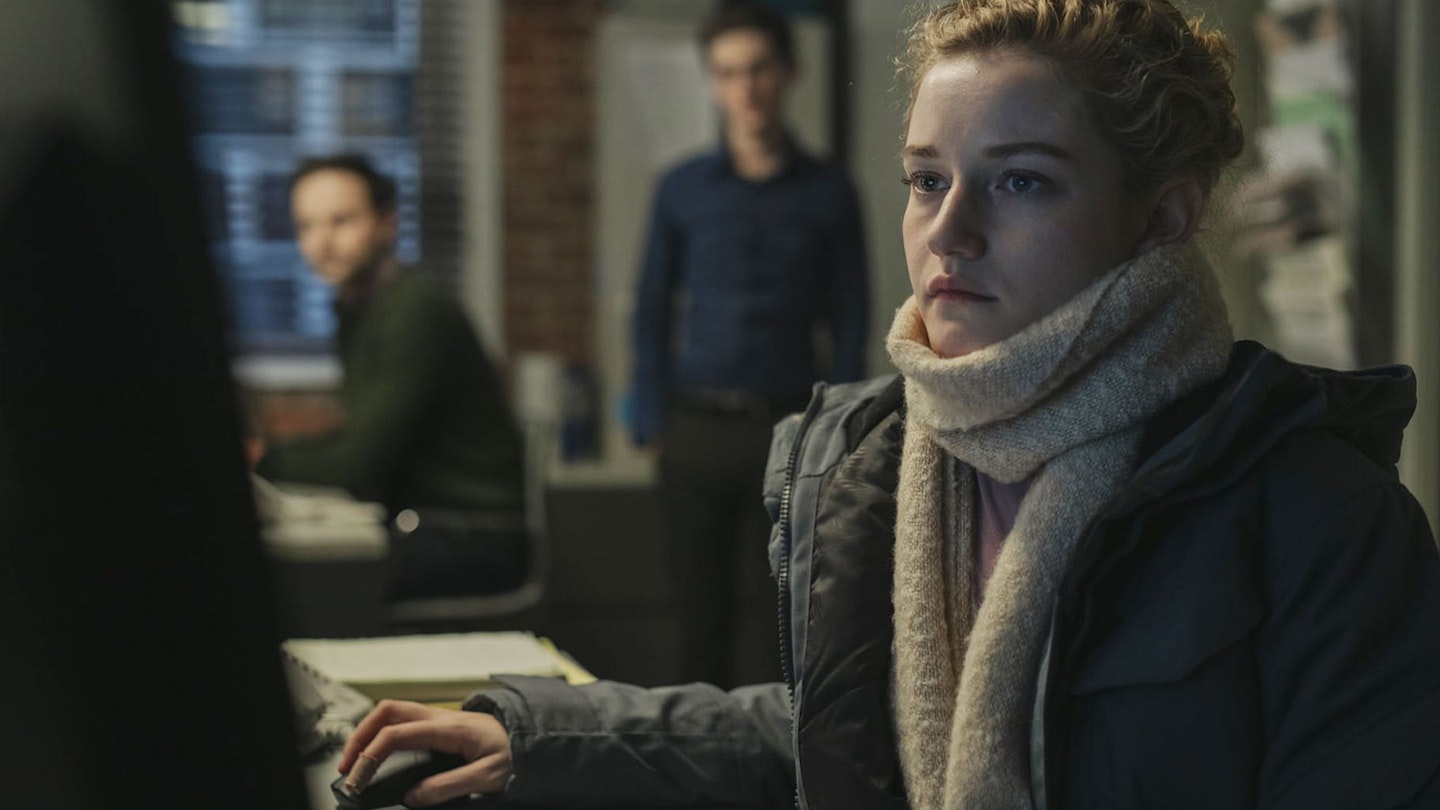The sky is dark and quiet both when Jane (Julia Garner) first walks into the office, and when she leaves. “First one in, last one out, right?” she’s reminded. Jane does everything, for everyone; taking calls, booking cars, cleaning floors, stacking bottles, washing dishes. Director Kitty Green spends the first 20 minutes or so showing this in real time — mundanities are afforded much more than a montage. We are never told her job title, but it never feels necessary. We know she is a film production company assistant, and that means she must be able to do anything. For who? All we get is a “he”. Jane works for a very important man that everyone knows, everyone wants to impress and everyone talks about. We don’t get his name or his face, but that doesn’t matter. Kitty Green’s debut dramatic feature (following documentaries Ukraine Is Not A Brothel and Casting JonBenet) is strongest in its silences, entirely in control of a subtext that screams without making a sound.

The film is in part inspired by stories of Harvey Weinstein’s years of criminal behaviour with women in the film industry, ranging from harassment to rape. In its execution, The Assistant makes rare references to this, or in fact to any names that might seem too familiar. The most specific namedrops are a film festival (Cannes) and a crime scene (Beverly Hills’ Peninsula hotel).
Garner is captivating and elevates the film into emotionally shaking art with rigidly chilly body language.
This approach works brilliantly, as it treats the viewer as intelligent enough to read between the lines and shout back at the screen with every micro-aggression thrown at Julia, even when she won’t let herself say anything. The most propulsive scene sees her come close to breaking, as she sits across the desk of HR manager Wilcock (Matthew Macfadyen, clearly cast off the back of his role as the seedy Tom Wambsgans from Succession, rather than his legacy as Mr Darcy). She doesn’t know where else to turn, when a day of threatening phone calls, one-sided conversations and crucial disappearances becomes too much for one person to shoulder.
There are two words that Macfadyen delivers with contempt that feel white-hot. He asks, “And?” and then tosses away a “jealous” to Jane. The decisions he has made — to question and to judge — are the ones that force Jane to carry more than any one individual should ever have to. Literally? Mugs, coats, children. Emotionally? Dismissals, underestimations, lies.
Garner is captivating and elevates the film into emotionally shaking art with rigidly chilly body language. Her silences are always meticulously deployed, her eyes seem to remain dry through arduous effort. When they glisten, only for a moment, you know she’ll rein it back in a blink.
This is a frustrating film not in its delivery, which is sophisticated and sharp, but because of how easy it is to draw parallels with so many real-life stories of distrusted women staying silent in unfair situations for too long. Let us listen to The Assistant: the time of keeping other people’s secrets in the dark must come to an end.

